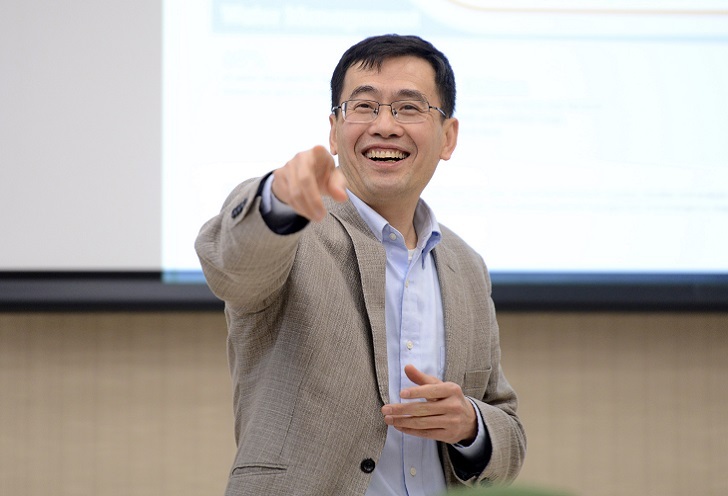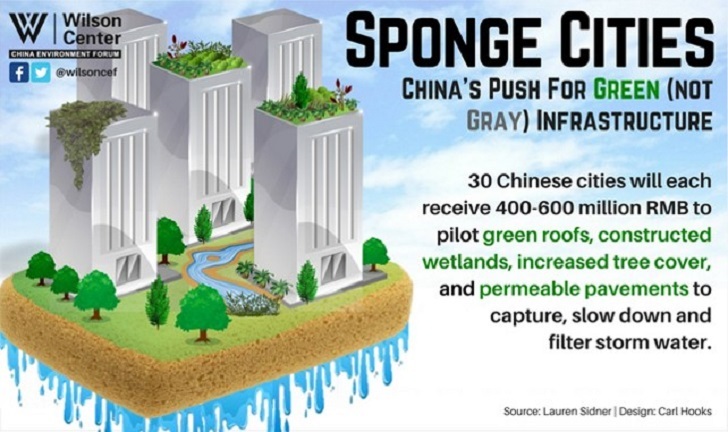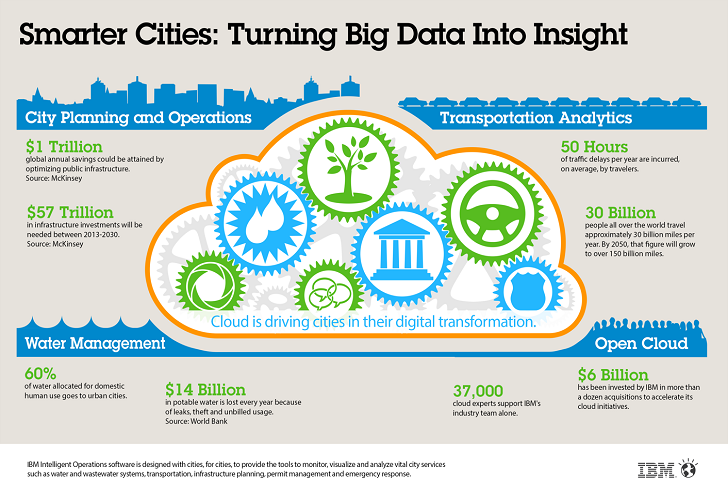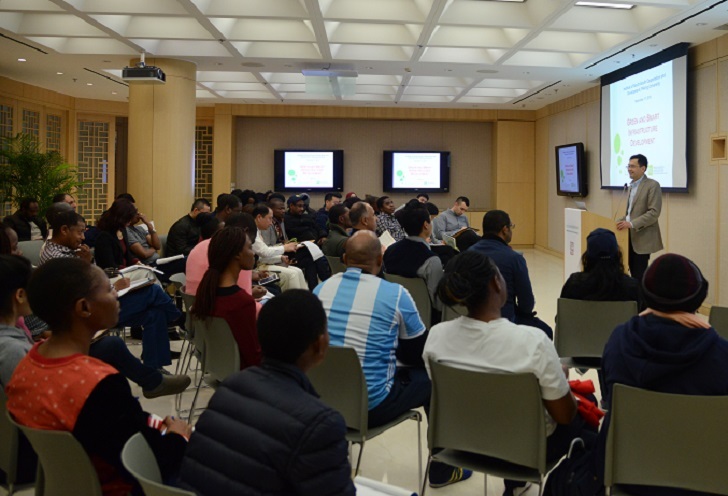Executive Education
sidenav header backgroundGreen and Smart Infrastructure Development
A seminar on "green and smart infrastructure development" was held as a part of Green Growth and Sustainable Development -- an executive education program by Peking University Public Policy Forum International, on the morning of November 17, 2018. The speaker was Professor Liu Zhi Director of Peking University - Lincoln Institute Center for Urban Development and Land Policy. The event was hosted by Prof. FU Jun, academic dean of the Institute of South-South Cooperation and Development, Peking University. The colleagues of the South-South Institute and international students from Yenching Academy attend the seminar.

At the beginning, Professor Liu Zhi raised a question to the audience, "What are the top five global challenges in the next 50 years?” The atmosphere of the class brightened up. Then he talked the theme of global future challenges and proposed that climate change and population aging would be the major issues in the future. He explained that "Green Infrastructure" is a network of infrastructure providing the “ingredients” for solving urban and climatic challenges by building with nature. He introduced how to achieve green infrastructure from the energy, water resources, ecosystem, and human health three aspects.
He gave the examples of China's green ecological infrastructure: Sponge Cities Project which includes 30 cities. The sponge cities project is designed to push for green (NOT Gray) infrastructure and solve China's highly intensive urban land planning problems. 30 Chinese cities will each receives 400-600 million RMB to pilot green roofs, constructed wetlands, increased tree cover, and permeable pavements to capture, slowdown filter storm water. Every household in the United States has a yard, so the land is relatively soft, and precipitation is easy to penetrate into the land, while most Chinese cities are dominated by high-rise residential buildings, and the land is hard, which is easy to form water accumulation on the surface. In order to solve the problem of drainage, the sponge cities project proposes to build a sky garden on the top floor of high buildings to absorb precipitation.

Then Professor Liu Zhi focused on the financing of green infrastructure. He said that China is now the world's largest green bond market, making up 2% of Chinese bonds, compared to less than 0.2% of the global bond market. The Chinese potential is tenfold, because 20% of investments in China need to be green to meet the national objectives. "Green bonds" can be used to finance renewable energy projects, storm water management projects and clean water supply projects to improve environmental conditions.

He emphasized the Essentials of a smart city include economy, public order and protection, utilities, transportation and social, and he introduced concepts Transit-Oriented Development Model (TOD) -- Mixed-use, higher density, pedestrian friendly development within walking distance of a transit station, which will enhance the use value of land and other assets, and also introduced Smart infrastructure -- a smart system uses a feedback loop of data, which provides evidence for informed decision-making.
The participants raised questions from time to time actively and Professor Liu Zhi discussed with them the barriers smart infrastructure construction is facing and made suggestions in connection with the actual situation of different scenarios and conditions.

(Report by Zhang Haosong, photo by Ning Ying)







